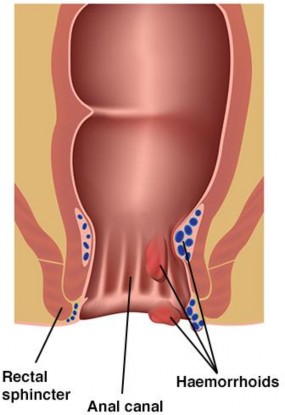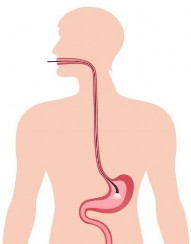What is a haemorrhoidectomy?
Haemorrhoidectomy is an operation to remove severe haemorrhoids (also known as piles). It is usually a day procedure and is usually carried out under a general anaesthetic. The procedure is common and generally safe, but recovery after the surgery can take a few weeks and can be painful.
Why is haemorrhoidectomy performed?
Most haemorrhoids can either be treated with medicines or non-surgical procedures or avoided with appropriate diet and exercise.
If non-surgical treatments don’t work, or the haemorrhoids are particularly large, a doctor might suggest a haemorrhoidectomy.
Removing the haemorrhoids will relieve the uncomfortable symptoms, but haemorrhoids can also return.
How do I prepare for a haemorrhoidectomy?
If you are having a haemorrhoidectomy, you should follow the guidelines your hospital or clinic gives you on how to prepare for the procedure.
You will be asked not to eat or drink some hours before admission to the hospital. If you usually take blood-thinning medication, you will be asked to stop taking it some days before the procedure.
You might also be asked to take an enema or laxative to empty out your bowel on the day of surgery.
What happens during a haemorrhoidectomy?
A haemorrhoidectomy is performed under a general anaesthetic, so you won’t be awake during the surgery.
There are several types of haemorrhoidectomy procedure:
- Banding for early internal haemorrhoids (can be done along with Colonoscopy)
- The haemorrhoids can be cut away
- The haemorrhoids can be pulled back inside the rectum and stapled in place.
- The arteries supplying blood to the haemorrhoids can be closed to help them shrink.
What to expect after a haemorrhoidectomy?
Many people go home the same day, but make sure you are collected by someone who can take you home.
The general anaesthetic might make you feel sick and tired for one or two days. Many people need to take 1 to 2 weeks off work.
Pain
After Banding: Pain is more of like a dull ache or sense of fullness.
After Haemorrhoidectomy: Pain can be quite considerable and can last for few weeks.
Take regular Paracetamol. You may be sent home with Tapentadol- slow release (SR) and/or Endone. Please take these as prescribed and be aware that they may constipate you.
You may also be sent home with anti-inflammatory drugs (e.g., Celebrex or Ibuprofen/Nurofen).
If you need ongoing strong pain relief and your supply from hospital has run out, please get in touch with your GP.
Bowels
It is important to avoid constipation, so you should drink plenty of water and eat a healthy diet that is high in fibre, fruit and vegetables.
Please take regular aperients/stool softeners from early postoperative period- Metamucil 1 teaspoon in a glass of water once or twice a day for at least 14 days after surgery, adding Lactulose syrup 30mls at night. Avoid getting constipated and straining when opening your bowels.
Wounds
You may have a gauze dressing over the operated area after surgery, which you can leave there until the following morning. Remove prior to having a shower and salt bath. It is ok if this dressing falls off or needs to be removed to open your bowels.
You will be discharged with antibiotics, usually Flagyl 400mg, taken three times per day for 5 days to reduce the chance of infection.
Use an absorbent dressing. Use of Ice packs in first 24 hrs will help in reducing swelling.
Sitz bath – sitting in lukewarm water salty water for 15-20 minutes for 2-3 times per day, will help in reducing spasm and keeping the area clean, decreasing the chances of infection.
After each bowel motion, gently wash the area with soft wipes or under the shower and gently pat dry, avoid rubbing the area.
Mild bleeding is likely for first few days. Monitor the amount of bleeding. If there is continuous / significant, please return to your nearest emergency department.
With banding, expect a bit of increased bleeding at around 3-5 days from the procedure, when the banded haemorrhoids fall off.
Your doctor will probably ask you to return for a check-up sometime after your operation.
What can go wrong?
Haemorrhoidectomy is a common and generally safe surgical procedure. But there can also be complications, including:
- excessive bleeding
- difficulty urinating
- infection, which might cause a high temperature
- loss of control of the rectal sphincter
- narrowing or damage to the anal canal
If you have any of these symptoms, or the pain around your anus gets worse rather than better, you should call your doctor for advice.



